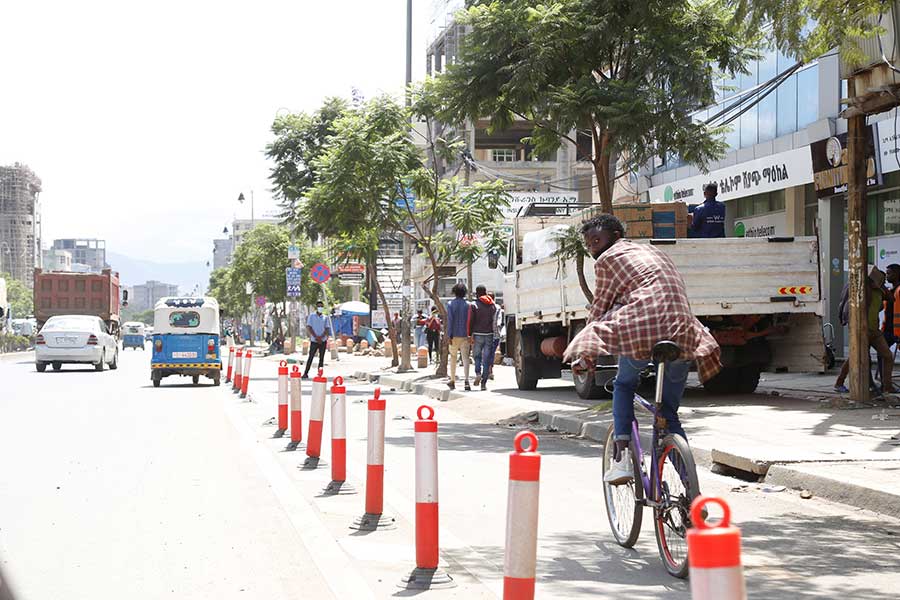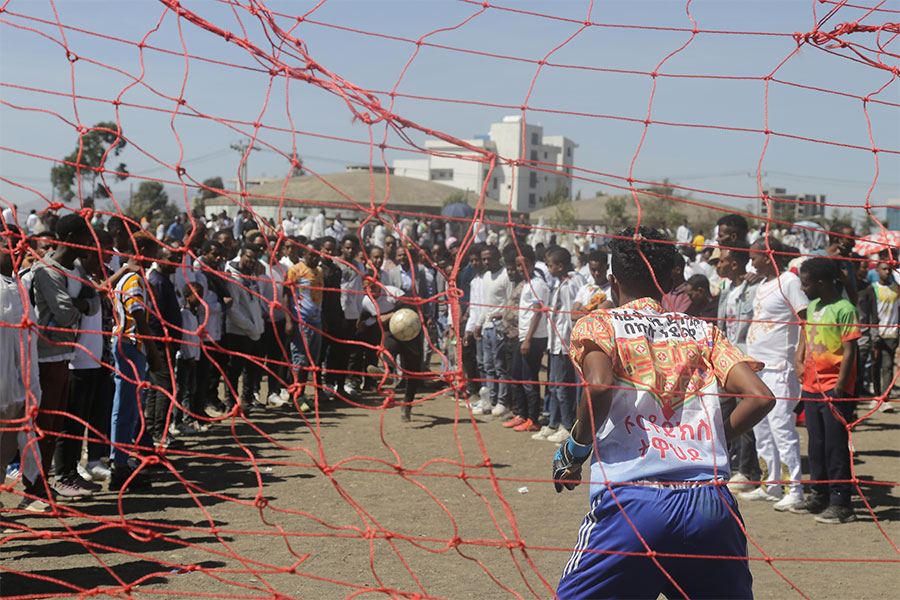
May 25 , 2019
By Tsion Fisseha
Every month a girl that has reached adolescence has to host a not so friendly visitor. Its name is menstruation, and it is not pretty.
The first time I heard about the biological process that leads to menstruation, it scared me more than any horror movie I was exposed to at age 10. It horrified and disgusted me to the point where I hoped I would never grow up. But I did. As a woman who has had her share of menstrual cycles, the emotions that were once fear and disgust have now evolved into something more than that, shame.
Despite the fact that this phenomenon is normal, it is frowned upon as an item of discussion in public settings, especially when men are present.
Not talking about it however does not in any way address its challenges. In fact, it being a taboo can cause irreversible psychological and physical damage to some women.
Physically, menstrual cycles cause lower abdominal pains, back pains and headaches. It also affects the texture of skin and the sound of one’s voice.
More commonly, periods affect the day-to-day activities of most women that have to go through with it. A common mistake people make while attempting to understand periods is assuming that they last from three to seven days each month.
This is not true. Days before this not so friendly visitor, premenstrual syndrome (PMS) comes with all kinds of mood swings ranging from irritability, anger and moodiness to more severe conditions that can be debilitating for some.
Another factor that also carries an immense significance is the financial aspect of periods. A number of nongovernmental organizations have done case studies that highlight the stress and weight sanitary pads designed for this particular purpose have on regular users. Earning less income than men, paying for these items can create financial strains for some women.
Given the impacts of a single period cycle on emotional and physical wellbeing, the way society chooses to deal with it is instrumental to the welfare of women.
In some rural areas of Ethiopia, families build a rather tiny room that can be of use when the girl has to go through that time of the month. These girls are kept there with little to no ventilation, which may ultimately result in their death.
Not only that, even here in the capital, female students sometimes miss at least four days of school because of the lack of awareness that is given about the sexual and reproductive health and the lack of finances to cover the cost of sanitary pads. These girls then have to try to catch up with lessons they miss when they are not around.
This lack of discussion of one of the most common phenomena that cause distress and anxiety among teenage girls who may be at a loss for who to talk to.
“Menstrual blood is the only source of blood that is not traumatically induced. Yet, in modern society, the one so rarely spoken of and almost never seen, except privately by women,” says Judy Grahn, American poet and author.
Menstruations, menstrual cycles or periods are a part of women, which makes them a part of society. That is why more platforms that encourage open discussions with girls should be available. That is why norms and taboos should be broken to make sure that little girls that will inevitably reach the age when they will have menstrual cycles do not get the impression that there is something wrong with them, to educate them and ensure that it does not serve as a barrier.
PUBLISHED ON
May 25,2019 [ VOL
20 , NO
995]


Commentaries | Apr 10,2021

Radar | May 23,2020

Commentaries | Feb 04,2023

Radar | Jan 28,2023

My Opinion | 131584 Views | Aug 14,2021

My Opinion | 127940 Views | Aug 21,2021

My Opinion | 125915 Views | Sep 10,2021

My Opinion | 123539 Views | Aug 07,2021

Dec 22 , 2024 . By TIZITA SHEWAFERAW
Charged with transforming colossal state-owned enterprises into modern and competitiv...

Aug 18 , 2024 . By AKSAH ITALO
Although predictable Yonas Zerihun's job in the ride-hailing service is not immune to...

Jul 28 , 2024 . By TIZITA SHEWAFERAW
Unhabitual, perhaps too many, Samuel Gebreyohannes, 38, used to occasionally enjoy a couple of beers at breakfast. However, he recently swit...

Jul 13 , 2024 . By AKSAH ITALO
Investors who rely on tractors, trucks, and field vehicles for commuting, transporting commodities, and f...

Jun 28 , 2025
Meseret Damtie, the assertive auditor general, has never been shy about naming names...

Jun 21 , 2025
A well-worn adage says, “Budget is not destiny, but it is direction.” Examining t...

Jun 14 , 2025
Yet again, the Horn of Africa is bracing for trouble. A region already frayed by wars...

Jun 7 , 2025
Few promises shine brighter in Addis Abeba than the pledge of a roof for every family...

Jun 29 , 2025
Addis Abeba's first rains have coincided with a sweeping rise in private school tuition, prompting the city's education...

Jun 29 , 2025 . By BEZAWIT HULUAGER
Central Bank Governor Mamo Mihretu claimed a bold reconfiguration of monetary policy...

Jun 29 , 2025 . By BEZAWIT HULUAGER
The federal government is betting on a sweeping overhaul of the driver licensing regi...

Jun 29 , 2025 . By NAHOM AYELE
Gadaa Bank has listed 1.2 million shares on the Ethiopian Securities Exchange (ESX),...